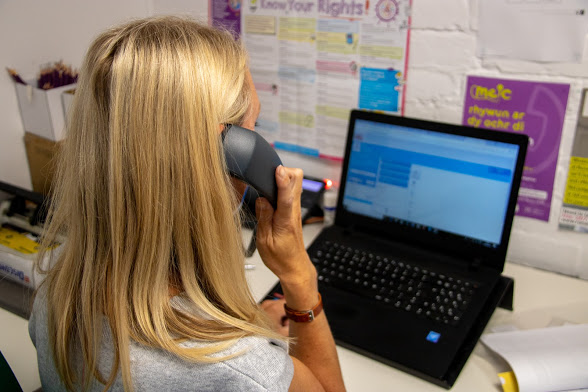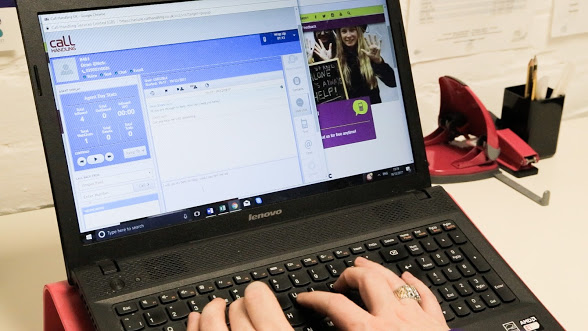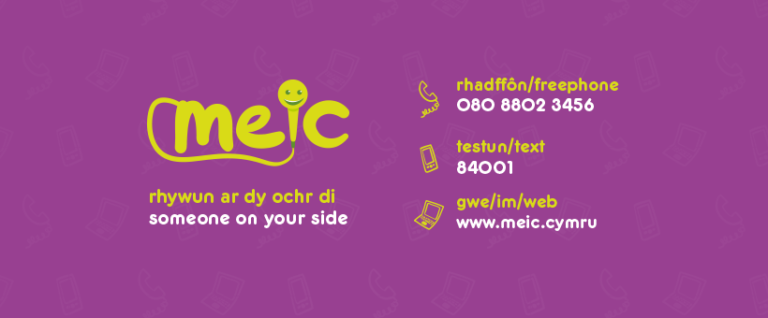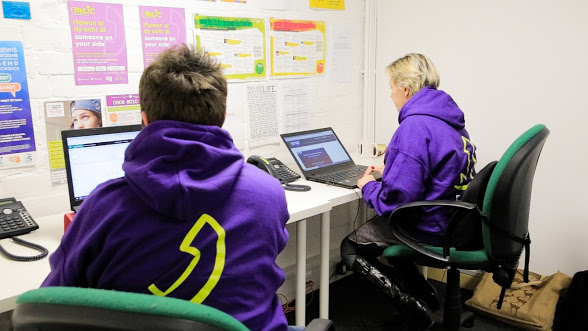Interview With An Adviser

Ssh, I’ve got a secret to tell you! You know those people you talk to when you contact the Meic helpline on the phone, text or instant message? Well they are actually real life people who eat, drink, sing, dance, laugh and cry.
(This article is also available in Welsh – I ddarllen y cynnwys yma yn Gymraeg, clicia yma)
Their breath probably smells in the morning just like yours, they’ve probably done some things that makes them cringe, they’ve fallen in love, argued and struggled with things. They have also got loads of training and experience to be able to help those of you who come through to the helpline, and they really love being there for you when you need them. We thought it would be a really nice idea to get one of these advisers to answer a few fun and interesting questions about themselves, so that you get to know more about them, giving you an idea of the human on the other side of the line. We grabbed Dean for a chat and started with a few quick fire questions to get him warmed up.
Cat or dog?
DogVideo games or TV?
TVIce cream or cake?
CakeDay or night?
Err… NightChocolate or crisps?
ChocolateHorror or Comedy?
Comedy!Chinese or Indian food?
Chinese, yumCity or country
Ooooh… country, just about.Singing or dancing?
SingingDress up or dress down?
Dress downNow we move on to the big questions. How long have you been an adviser for?
Eight years… and a month.Wow! Tell us what is it that a Meic adviser does?
What we do mostly is we provide advocacy to young people who think they need some help getting their thoughts, wishes and views heard by professionals or other people in their lives. We can help them think about what they might want to say if they want to self-advocate and take control of the situation themselves. We love to try and help them stop, start or change their situation, give them information and give them advice on lots of different types of things.So how are Meic advisers able to help, do you need particular qualifications?
In our team we come from lots of different types of professional backgrounds. We’ve all worked with refugees, or as teachers, or in a family support team. We’ve got youth workers, careers advisers… a big range of backgrounds. Within our role, the main kind of professional training we need to have is advocacy training. In particular child protection or safeguarding training. Usually it’s from a helping type of background. Working with young people, or vulnerable people, or people generally, is an advantage. That’s some of the training that’s quite important in the job.What happens if you don’t know how to help with something?
It does happen- we’re not experts in everything. We may check with a colleague who’s got knowledge I might not have. We do some research and we’ll get back to you with some information. Obviously we could check things with the managers if something is urgent. There are situations we can’t always help- like a medical situation. Suppose a young person comes through and says: “I think there’s something wrong with me, these are my symptoms, what do you think it is?” – we are not medically trained so we can’t help you with that. We would probably pass you over to NHS Direct in that case.
Have you ever had any calls that had an effect on you?
Yes. Empathy is important in what we do. Sometimes your personal experiences can be an advantage because it gives you further empathy. In situations where a young person is in crisis, or upset, or feeling really down, it can make you feel sad as well.Will you keep what I tell you confidential?
If you come through the helpline, we will of course, apart from two different situations. One is if you ask us to act as advocates. We would have to contact your school if that’s what you asked us to do, or perhaps a social worker or a service. We wouldn’t be able to share that information without your consent. The other situation is safeguarding. There is a risk of harm if somebody is in a situation where they or someone close to them is at risk of immediate danger or harm, perhaps physical violence. We have no choice but to share that, because we are responsible to do that as a service. So yes it is confidential except in a safeguarding situation. We’re not in a vacuum though – we operate as a team. So we might talk about it with the colleague we are on shift with, but we never talk about anything with anybody else. It all stays within the team.Is it lonely being on the helpline all day?
Very rarely, thankfully, you’d be on your own. You would feel lonely in that case, but the vast majority of the time you’ve got a colleague with you. Someone to bounce ideas off if you’re in a call and someone to support you through a shift. Years ago, when Meic was 24 hours a day, we used to work on our own through the night. That could get lonely. If you were busy maybe it was OK, maybe you had some good calls or things you felt made a difference. We’re really rarely on our own now though.Last one… promise! What is the best thing about the job?
There’s not just one thing. I love working in a good, supportive team but I also love when you feel that you have made a difference to someone on the helpline, especially if you’ve been able to help someone help themselves.Awesome! It’s been interesting chatting to you, thanks Dean.
So there you have it. That was one of our lovely advisers who work on the helpline team. We hope that seeing them as real life people will make it a little easier for you to contact the helpline if you’re feeling nervous or worried about calling. All our advisers are just as friendly and caring and really do work to make things easier for you and help you with what’s going on in your life. So don’t hesitate, contact the helpline today if you’ve got an issue that’s worrying you or you need help with anything. We’re open 8am to midnight, 7 days a week.





















